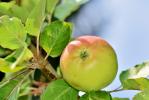Biodiversity Foundation Project Monumental Olive Groves for Biodiversity: Project for the socioeconomic revitalization and conservation of biodiversity and the cultural heritage of monumental olive groves and old olive groves
- Type Project
- Execution 2022
- Scope Europeo
- Main source of financing Recovery, Transformation and Resilience Plan (PRTR)
- Project website Web proyecto (Fundación Biodiversidad)
In the current context of devaluation of the rural environment and increasing loss of biodiversity, it is imperative to create and implement an approach to resource generation that is environmentally friendly and promotes biodiversity. A transformation of production objectives is absolutely necessary, placing emphasis on quality and sustainability, both at the agricultural and natural levels.
The main justification for the project is the implementation of an ecological and economically and environmentally sustainable agro-rural development model in economically depressed regions with a clear agricultural and rural focus. This model will be implemented in olive groves, highlighting these monumental specimens hundreds or thousands of years old, traditional landscape elements such as dry-stone buildings, and all the biodiversity that these traditional crops support, including birds of prey, some of which are in danger of extinction.
The scope of action focuses on the regions of Lleida and Terres de l'Ebre in Catalonia, and Bajo Maestrazgo and Matarraña in Castellón and Teruel, respectively, and on La Litera in Huesca. In Catalonia, specifically the regions of Les Garrigues and Montsià, these are regions with a rich agricultural and rural environment and a large number of century-old olive groves, but with an adverse climate and an aging and clearly declining population. The aim is to offer the population of these regions a model that enhances the value of a currently undervalued territory.
Olive groves are characteristic features of the rural environment in the regions of Les Garrigues and Terres del Ebro, with a significant presence of centuries-old and ancient olive trees. This landscape is home to a high biodiversity of fauna and flora species and heritage elements of interest (dry stone). Conventional agricultural practices have led to a loss of biodiversity, in addition to reducing the value and quality of the products obtained. The reduction in the sale price of olives has led to the abandonment of olive groves and their sale as ornamental trees. Through the consolidation and expansion of this project, initiated in Les Garrigues in 2011, the aim is to achieve socioeconomic revitalization based on the organic cultivation of old and monumental olive groves to preserve and enhance biodiversity, cultural heritage, and the landscape itself.
The state of conservation of the new farms will be analyzed, and management and action plans will be designed and implemented for agricultural adaptation and recovery, as well as for sustainable agricultural exploitation. These plans will be accompanied by production, marketing, and sales of the oil obtained. In parallel, livestock management plans are planned for the farms, biodiversity improvement efforts, and cultural heritage restoration. This will be accompanied by scientific validation and monitoring of the implemented agricultural model, the development of best practice manuals for farmers, the design of ecotourism itineraries, and the development of environmental education activities.
With all this, it is expected that 85 new hectares of olive groves will be recovered on 10 farms. These will be combined with the 35 hectares already in production, and 400,000 kg of olives will be harvested, producing a total of 25,000 liters of oil. The oil will be sold mainly locally, through the existing oil brand and the creation of a new one. On the new farms, turtles will be released and nesting boxes, biodiversity ponds, and insect hotels will be installed. Cultural heritage elements will be restored, four ecotourism trails created, and five volunteer initiatives and activities will be carried out in 20 educational centers, 30 local groups, and 10 businesses.
This bioeconomy project aims to implement, in old and monumental olive groves, an ecological and environmentally, economically, and socially sustainable agricultural management model through the production of high-quality organic olive oil linked to the improvement of biodiversity and the conservation of heritage, as well as the creation of ecotourism resources linked to the olive grove.
- FUNDACIÓN AAP PARA LA ACOGIDA DE ANIMALES EXÓTICOS (AAP PRIMADOMUS)







